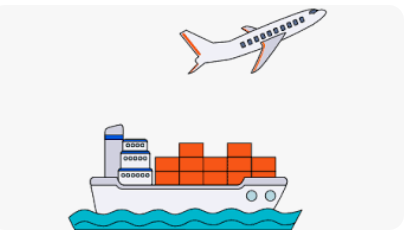EXW (Ex Works) Incoterm: Understanding the Basics of International Trade
Introduction:
In the realm of international trade, various trade terms and regulations govern the responsibilities and liabilities of buyers and sellers. One such commonly used term is EXW (Ex Works). In this article, we will delve into the fundamentals of EXW, its implications for buyers and sellers, and the considerations involved in using this Incoterm.

1.Defining EXW:
EXW, short for Ex Works, is an internationally recognized trade term that defines the delivery obligations and risk transfer rules between the buyer and seller. Under EXW, the seller's responsibility is limited to making the goods available at a designated location, typically their factory or warehouse. The buyer assumes all transportation, customs, and insurance responsibilities.
2.Seller's Obligations:
When operating under EXW terms, the seller's primary obligation is to have the goods ready for pickup or delivery at their specified location. This includes ensuring that the goods are properly packaged and labeled, ready for the buyer's designated carrier to collect them. The seller is not responsible for loading the goods onto the carrier's vehicle or container.
3.Buyer's Responsibilities:
As the buyer under EXW terms, you bear significant responsibilities and costs. You must arrange and cover the costs of transportation, which includes selecting a carrier, organizing the logistics, and ensuring compliance with import regulations. Additionally, the buyer assumes the risk of loss or damage to the goods during transit and must secure appropriate insurance coverage.
4.Benefits and Considerations:
4.1 Flexibility and Control: EXW offers experienced buyers greater flexibility and control over the transportation process. You have the freedom to choose the most suitable shipping method, negotiate directly with carriers, and manage the entire logistics chain according to your preferences.
4.2 Cost Efficiency: By assuming responsibility for transportation, the buyer can potentially reduce costs by leveraging their existing network of shipping providers or selecting the most cost-effective shipping options available.
4.3 Expertise Required: EXW terms may pose challenges for inexperienced buyers. Managing complex logistics, customs procedures, and insurance matters can be daunting and time-consuming. Novice buyers are advised to consider alternative Incoterms such as FOB (Free on Board) or CIF (Cost, Insurance, and Freight) to simplify the process and reduce risks.
Conclusion:
EXW (Ex Works) is a commonly used Incoterm in international trade. It outlines the delivery obligations and risk transfer rules between buyers and sellers. While it offers experienced buyers greater control and flexibility, it can be challenging for those new to international trade. Understanding the responsibilities and considerations associated with EXW is crucial for successful and efficient trade transactions. Always ensure clear negotiation and comprehension of the specific terms and allocation of responsibilities before engaging in any trade agreement.
Related articles

 WeChat of CBiBank
WeChat of CBiBank